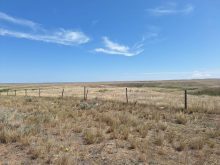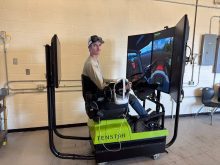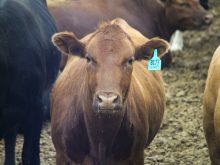The Mane Event in Chilliwack, BC is your opportunity to learn from 13 of North America s best clinicians, in a variety of disciplines. If you are one of the lucky ones who will be participating in a clinic at The Mane Event, or you re still thinking about it, here are some tips about choosing a clinician and how to prepare you and your horse for the clinic.
EVALUATE THE TRAINERS
Marion Weisskopff, horsemanship clinician at The Mane Event, suggests you learn as much as possible about the trainers you are interested in before hauling your horse to their clinics. If possible, audit a clinic from the trainer first to evaluate his teaching style and abilities in an economical way, Marion says. If you can t audit a clinic, visit their farm and take a private or semi-private lesson, or phone and talk to them. If you re going to an expo such as The Mane Event, study their website, and if trainers have personal web pages, check those out, too, as well as any DVDs, magazine articles or training books they may have produced.
Read Also

Farming Smarter receives financial boost from Alberta government for potato research
Farming Smarter near Lethbridge got a boost to its research equipment, thanks to the Alberta government’s increase in funding for research associations.
You can also evaluate trainers knowledge by checking if they re certified, and if so, to what level. If the clinician is involved in showing, determine how successful he s been in the arena. But remember, just because a person has won a lot in the show pen doesn t mean he s good at starting colts, and vice versa, Marion says.
Most of us are attracted to trainers specializing in our specific discipline, but don t automatically reject clinics taught by those who train other specialities. For example, at this year s Mane Event, Marion will be specializing in Cowboy Dressage, but she also has years of experience in English, Western, driving, natural horsemanship, horse logging and cow work. Likewise, Mane Event Clinician Mark Sheridan of Arizona will be teaching Western Pleasure clinics at this 2011 event, but he also brings a wealth of experience in English riding, basic horsemanship, grooming and horse care. Trainers such as this can provide you with valuable tips even if your horse goes onto a different career in the future.
CHOOSE THE RIGHT CLINIC FOR YOU AND YOUR HORSE
After you ve found a suitable trainer, try to determine which of his clinics will best suit you and your horse. If you re a beginner rider, don t enter an advanced clinic without checking with the clinician first. One of my friends recently audited an expensive clinic aimed at intermediate riders who were already competing in reining. At the clinic was a beginning rider on a nice, but fairly green horse. While the rest of the reining group wanted to work on flying lead changes, this lady was struggling to even get her horse to lope. The clinic ended up being a waste of money for some of the riders, my friend related. The trainer had to spend a lot of his time on this one rider, and it limited his time with the others.
To help determine if a clinic is right for you and your horse ask yourself: What do I want to learn from this clinic? and Will this clinic help me meet my goals?
PREPARE YOUR HORSE FOR THE CLINIC
Before arriving at your clinic, try to determine what your horse will be expected to do, and then physically prepare him for the job. Ensure he s fit enough to work for a reasonable length of time, have his feet properly cared for, and make sure his vaccinations are up to date.
Horses also need mental preparation for big clinics and expos. If your horse has never attended a busy show, you can expect he ll find the crowds, other horses and arena obstacles stressful. You can lessen some of his stress by riding with a group before the clinic, taking the time to work through these issues. Why spend hundreds of dollars for a clinic, and waste your time when your horse won t walk near the arena wall?
Marion suggests you arrive early enough to allow your horse to settle. There s nothing worse for your horse than rushing, she says. So get there soon enough to warm up properly before the trainer arrives.
Pack wisely, bringing everything you think you ll need, and more. Obviously you ll need your saddle, blanket and headstall, but consider the extras as well. Perhaps you ride in a leverage bit, but what happens if the trainer suggests you put him back in a snaffle to work on a specific issue? And don t forget all the things you ll need at a multi-day expo feed, water buckets, show sheet and wheel barrel.
HAVE FUN!
By taking the time to choose the clinician and clinic that s right for you and your horse, you ll be way ahead of the game and be able to concentrate on the most important part of participating in a clinic having fun! .














